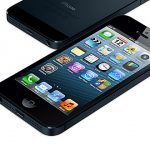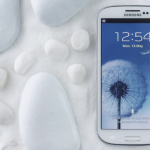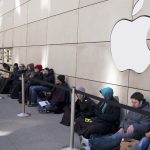The enterprise will never embrace Apple

First in a series. If there is one company that clearly doesn't care about the corporate world, it is Apple. As iOS continues to forge flagship status as Apple's core offering, OS X gets second-class-citizen treatment in every possible way from the Cupertino, Calif.-based company. While the enterprise reluctantly builds out BYOD (bring your own device) initiatives to support usage of Apple devices at the workplace, this is a far stretch from openly embracing iOS or OS X as viable corporate platforms. Apple's presence in the boardroom is due to bottom-up organic acceptance as opposed to top-down purposeful planning.
By even conservative estimates, the enterprise IT market is massive, and growing steadily as the recession continues to recede. IDC recently pinned US corporate IT spending for 2013 at $474 billion, a 6 percent increase over the previous year. And globally, Gartner says that this figure is closer to $2.679 trillion, which represents a 2.5 percent year over year bump. Yet while Apple's sales in phones and tablets continues to stay consistently solid, the company's attitude towards enterprise hasn't changed one bit. For lack of a better description, top Apple executives just "don't care".
T-Mobile announces trade-in offer for the iPhone 5

In just two days, T-Mobile customers will be able to purchase the iPhone 5. The fourth-largest carrier in the US offers the smartphone for $99.99 upfront paired with $20 monthly payments over two years, when purchased alongside the Simple Choice Plan. Also, prospective buyers can pre-order the iPhone 5 today, until April 12 when the device officially goes on sale.
In order to boost the adoption and initial sales of the iPhone 5, T-mobile is also offering users the option to trade-in another iPhone to lower the overall cost. "Our message to iPhone 4S and iPhone 4 customers is simple: bring in your device and trade up to iPhone 5 on T-Mobile", says Mike Sievert, chief marketing officer for T-Mobile. So what do you get in return?
5 million Americans cut cable's cord
What interesting timing. The same day Ericsson agrees to buy Mediaroom from Microsoft, Nielsen releases fascinating report "Free to Move Between Screens". The two things are strangely related. A decade ago, the IPTV division made more sense. Today, television habits are changing, something Microsoft brianiacs apparently recognize and others would be wise to do likewise. Nielsen hints at the future.
Consider where we are in just three years. Before iPad's launch in April 2010, few US television networks (I don't know that any) offered two-screen experiences. Now they're commonplace, under the presumption millions of Americans sit with tablets in front of their boob tubes (and they do). HBO Go launched two months earlier. Go back six years, you have Amazon, Apple and Netflix streaming and Hulu's launch. Along with the DVR's rise in popularity, how Americans consume television programming dramatically changes.
The Apple-Google duopoly so dominates app downloads there is little room for BlackBerry and Windows Phone

Mobile app store downloads from the four major stores -- Apple, BlackBerry, Google and Microsoft -- reached 13.4 billion in first quarter, generating $2.2 billion revenue, according to Canalys. Combined, revenue from new sales, in-app purchases and subscriptions grew 9 percent from fourth quarter, while number of downloads climbed by 11 percent.
There are a half-dozen measures that mark successful platforms, with money being the most important. Developers typically go where they earn more. That's preface to a fascinating juxtaposition partly explaining developer preference for iOS, even though more Android devices ship and cumulative sales (750 million to 500 million) are larger. Google Play accounted for 51 percent of downloads during Q1. But Apple's App Store generated 74 percent of the revenue. Ponder those numbers for a moment.
What Facebook Home means to Apple and Google

How important is Facebook really? The answer may come soon after April 12, when the social network releases Home to Google Play. The Android add-on usurps the homescreen, putting interactions/people first and pushes apps to the background. This, ah, Home invasion means potential trouble for Apple and Google, but in vastly different ways. Apps anchor both their platforms, curated content and the digital lifestyles users adopt. Facebook bets that between the choice of both ways, human relationships matter more.
For either the fruit-logo company or search and information giant, another question is perhaps more significant: Is Facebook's mobile experience already good enough? Related: Do most users want to be enmeshed in a constant stream of social updates and interactions most of the time? Affirmative answer to either, or both, spells trouble for the platform developers but most worrisome for Apple, for which Facebook Home affronts and condemns the entire business model.
Mozilla and Samsung team up to kill Chrome mobile

Say, Google, do you feel a sharp burning sensation in your back? That's the knife Samsung just plunged in. Ouch! The twisting motion must really hurt.
Mozilla and Samsung are collaborating on a new mobile web browsing engine, Servo, which success would offer huge benefits to both companies. Apple and Google dominate mobile devices with their respective WebKit browsers, largely shutting out Firefox from the most important device category since the PC. Incumbency is an advantage, with browsers preinstalled on Android and iOS. Users must download rival products, and many don't. Meanwhile the South Korean electronics giant accounted for nearly 43 percent of all Android smarthphone sales in fourth quarter, according to Gartner. The company controls the broader user experience via TouchWiz UI, but Google controls the browser.
Funny or Die releases a teaser trailer for iSteve, its Apple movie

If I was casting a film about Steve Jobs’s life, a comic actor probably wouldn’t be my first choice for the title role. But clearly I know nothing about such things. Because first we had Two and a Half Men’s Ashton Kutcher playing the Machiavellian Apple co-founder in Jobs, and now we have the boyish Justin Long as the titular iSteve in Funny or Die’s forthcoming full length feature film.
The teaser trailer for iSteve, which was released just now, doesn’t give much away, as it mostly consists of lines from the movie, but we do get a very brief look at Justin Long in the role at the very end.
What should you do when two-step authentication is not available for your Apple ID?

When Apple introduced two-step authentication for Apple ID my first thought was "Finally, the fruit company takes security seriously". But, as I've come to learn, that's not entirely accurate for everyone as the new feature is only available for users living in Australia, Ireland, New Zeeland, United Kingdom and United States. What if you're living in Canada or Germany? Well, tough luck, you can't use it. But what can you do?
Wired's Mat Honan is probably the best known Apple user to have fallen prey to Apple ID account hacks. Honan tells an alarming story, about habit and comfort (dare I say oversight) leading to having one's virtual identity shred into pieces. But two-step authentication cannot be forcefully enabled, so what can you do while waiting for Apple to support your region and mobile operator? You can still take some precautions that will secure your Apple ID account.
Samsung and Sprint dim iPhone 5's launch-sales glow

Only T-Mobile can save iPhone now. Apple's U.S. market share, as measured by smartphone operating system, retreated in February, according to data Kantar Worldpanel ComTech released today. With the iPhone 5 initial release sales glow gone, and a rapidly saturating market for a product feature set now three models old, share isn't sustainable. Meanwhile, Android gains -- as does Windows Phone.
iPhone share, based on sales, fell to 43.5 percent for the three months ended in February. That's down from 45.9 percent in January and from 47 percent a year earlier. By comparison Android is up -- to 51.2 percent from 49.4 percent sequentially and 45.4 percent annually. By the same reckoning, Windows Phone rose to 4.1 percent from 3.2 percent and 2.7 percent share.
Accidental Empires, Part 17 -- Font Wars (Chapter 11)

Seventeenth in a series. Love triangles were commonplace during the early days of the PC. Adobe, Apple and Microsoft engaged in such a relationship during the 1980s, and allegiances shifted -- oh did they. This installment of Robert X. Cringely's 1991 classic Accidental Empires shows how important is controlling a standard and getting others to adopt it.
Of the 5 billion people in the world, there are only four who I’m pretty sure have stayed consistently on the good side of Steve Jobs. Three of them -- Bill Atkinson, Rich Page, and Bud Tribble -- all worked with Jobs at Apple Computer. Atkinson and Tribble are code gods, and Page is a hardware god. Page and Tribble left Apple with Jobs in 1985 to found NeXT Inc., their follow-on computer company, where they remain in charge of hardware and software development, respectively.
New Trump reality TV show would have CEOs swap jobs for a day

Donald Trump is in negotiations with Fox and NBC to bring a new reality show to television, featuring corporate CEOs swapping roles. The concept is in advanced planning stages, with a mock-up pilot already shot and the two networks vying to add the series to their 2013-14 season. Normally, we don't bother with entertainment news at BetaNews, but two of the confirmed chief executives will interest our readership -- Apple's Tim Cook and Steve Ballmer of Microsoft.
Trump and NBC already have a working relationship on a number of projects from the original "The Apprentice" and its spin-offs. But Fox fiercely is negotiating rights, which aren't bound by Trump's existing contractual commitments with the Peacock network. News of the deal leaked Sunday night in an email accidentally -- or accidentally on purpose -- sent to several trade publications, including Variety. Leaks like this are often deliberate and designed to foil negotiations or to increase pressure on one of the parties.
Accidental Empires, Part 16 -- The Prophet (Chapter 10)

Sixteenth in a series. Robert X. Cringely's tome Accidental Empires takes on a startling prescient tone in this next installment. Remember as you read that the book published in 1991. Much he writes here about Apple cofounder Steve Jobs is remarkably insightful from the context of looking back. Some portions foreshadow the future -- or one possible outcome -- when looking at Apple following Jobs' ouster in 1985 and the company now following his death.
The most dangerous man in Silicon Valley sits alone on many weekday mornings, drinking coffee at II Fornaio, an Italian restaurant on Cowper Street in Palo Alto. He’s not the richest guy around or the smartest, but under a haircut that looks as if someone put a bowl on his head and trimmed around the edges, Steve Jobs holds an idea that keeps some grown men and women of the Valley awake at night. Unlike these insomniacs, Jobs isn’t in this business for the money, and that’s what makes him dangerous.
Imagine if you could get a drink at the Genius Bar...

Apple has gone to great trouble to craft its stores and reputation. The company refers to its employees as geniuses, for goodness sake! Taking your device in for repair is alluded to as a visit to the "genius bar". It is an entire ecosystem designed to make the customer feel confident and comfortable when dealing with the company. It is also a setup that lends itself to comedy and U.K. hard cider maker Somersby saw that opportunity.
The company has produced a new one-minute TV spot that portrays the Apple Store as a bar that serves up its cider and the geniuses explain why it is so good. The ad does not so much make fun of Apple (that is what Samsung is for), but instead uses the tech company's concept as a basis for some good tongue-in-cheek humor.
Post-PC era is REAL for U.S. Apple users

Today, comScore started a new service that ranks the top U.S. websites by desktop and mobile views -- the latter is a new measurement. Some of them really pop off the chart, with Apple glaring among traditional companies. More than one-third of unique visitors in February accessed the site via mobile device-only. That compares to 5 percent for Microsoft properties. Analysts, bloggers and journalists often portray the fruit-logo company as best representative of the so-called Post-PC era, and Windows' maker the epoch in decline.
The numbers aren't shocking, if you think about them. Windows has little presence on smartphones or tablets. Microsoft mobile OS smartphones share was just 3 percent during fourth quarter, according to Gartner. IDC forecasts Windows tablet market share, based on unit shipments, will be less than 5 percent this year. By comparison, iOS has greater reach, with, according to the company, cumulative shipments exceeding 500 million. Hell, Apple sold 43.5 million iPhones just in Q4, according to Gartner.
Apple credits evad3rs for bugfixes in iOS 6.1.3 -- the jailbreak is gone

Apple quietly rolled out iOS 6.1.3 yesterday, which touts "improvements to Maps in Japan" and the fix of a bug "that could allow someone to bypass the passcode and access the Phone app". Nothing out of the ordinary, really. But buried deep down in the more extensive changelog, almost hidden, the fruit company credits evad3rs -- the team of developers that jailbroke iOS 6 -- for a number of found bugs.
The extensive changelog is available in Apple's mailing list and lists evad3rs as responsible for four bug findings related to the iOS dyld (dynamic link editor), kernel, lockdown and USB. The said bugs affect the way the operating system handles local user requests to "execute unsigned code", "determine the address of structures in kernel", "change permissions on arbitrary files" and "execute arbitrary code in the kernel".
© 1998-2025 BetaNews, Inc. All Rights Reserved. Privacy Policy - Cookie Policy.